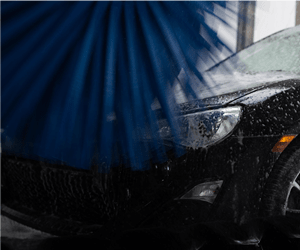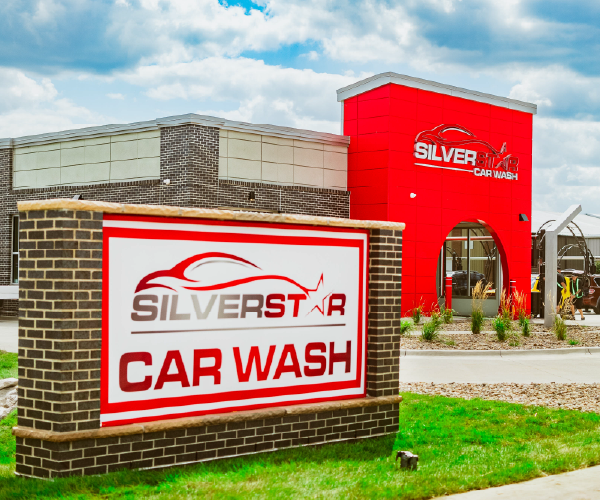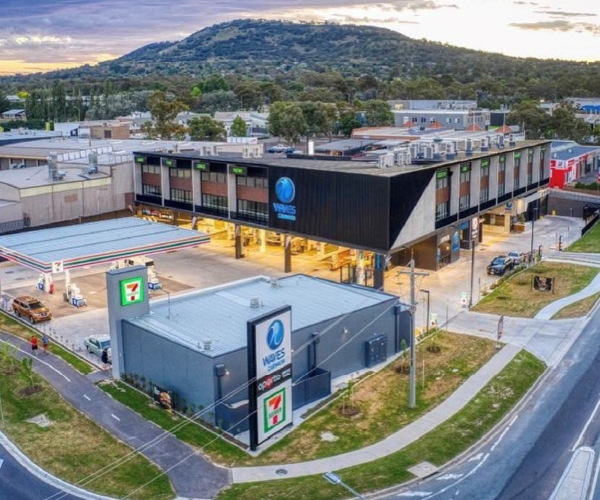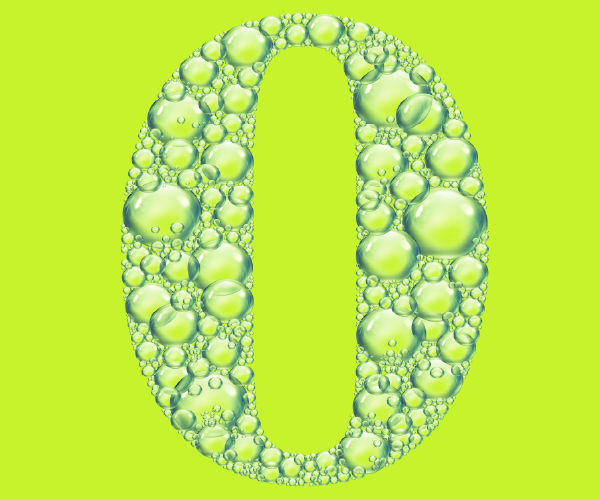
Joining Forces
April 1, 2013
7 minute ReadWhen Zep Inc. bought the vehicle-care division of Ecolab Inc. last December for about $120 million, it was hardly the standard business cliché of a juggernaut swallowing up a smaller competitor like a shark in a school of fish. Ecolab’s vehicle-care division was generating about $65 million in annual revenue, almost four times that of Zep Inc.’s car wash chemical segment.
But for many in the car wash business, it was indicative of a larger trend: The industry is apparently seeing more operators and suppliers bought out by major players, leaving the industry with slightly fewer stakeholders even as the number of car washes has slightly increased.
Norman W. Hoffmann, the author of Mergers and Acquisitions Strategy for Consolidations and the executive founder of AutoTraderOnline.com, said the 2008 economic collapse led to fewer acquisitions in most industries because many banks drastically tightened their standards for loans, and private-equity firms sustained heavy losses in the stock market, drying up acquisition capital.
With the economy gradually improving in recent years, however, banks began to lend again, and companies with solid balance sheets have been seeing opportunities, especially given that many small businesses, such as car washes, have seen their valuations drop by as much as 40 percent since pre-recession highs, Hoffmann said.
“The decline in the economy put heavy pressure on car wash operators, and manufacturers and suppliers felt the impact of that,” said Darrin Baum, senior vice president of sales and service for Zep Vehicle Care, the product of the merger with Ecolab. “But I think the industry is regaining its footing, business has improved, and you’ve got a lot of money out there on the sidelines with private-equity groups that look at this industry as a good long-term investment, so you’re seeing people make some strategic bets.”
Those strategic bets are occurring in a wide variety of industries. In April, T-Mobile USA completed its acquisition of MetroPCS Communications, the fifth-largest cell phone carrier in the United States. T-Mobile actually was late to the party, as in recent years, Verizon, AT&T and Sprint had all made significant acquisitions, with the merger of Sprint and Nextel one of the bigger deals the industry has seen.
In the hardware-store market, Home Depot and U.S. Home Systems Inc. completed their merger last October, an example of the roll-up approach following the roll-out strategy.
Danny A. Davis, a London-based management consultant and the author of M&A Integration: How to Do It, said when large-scale consolidation starts, it often is a sign that an industry has grown too much, too fast and has grown unstable.
“In consolidation, what we’ve admitted is that they’re too many,” Davis said. “If an industry has reached maturity, it can get to the point where there’s saturation, and then we come to a crunch point, such as a recession, and a slew of companies aren’t as profitable as they used to be, so many either fail or get bought up by the stronger ones, who can try to turn them around with more capital, a new business plan and by reducing costs.”
A BUYER’S MARKET
Hoffmann said the economic climate has fueled consolidation because unlike many retail stores that rent their buildings, car wash operators typically own their buildings, and the depressed real-estate values have driven down the purchasing price for many independent car washes. The struggling economy also has taken a toll on operators’ revenue figures, further lowering the purchasing price.
For successful car wash companies, it’s been a buyer’s market in recent years.
“I think this is a highly attractive time to consolidate as an investor,” Hoffmann said. “But if you’re the owner of a car wash, as the economy continues to improve, your revenue will likely increase, and the value of the business will increase, so this is not a great time to sell.”
In April, Ryko Solutions Inc. completed its purchase of MacNeil Wash Systems Ltd., a leading supplier to tunnel car washes, a move Ryko said would make it the second-largest car wash equipment manufacturer in the world.
On the operator side, Mister Car Wash added 35 locations last year alone to increase its count to more than 105. Those additions included the purchasing of Cloister Wash & Lube’s four car washes in Pennsylvania, six XStream Auto Clean car washes in Texas, four Tidal Wave Auto Spa car washes in metro Atlanta and the single-location Star Wash in Salt Lake City. “The Zep and Ryko acquisitions just in the past year are two of the largest deals we’ve seen in the industry,” said Baum. “And Mister Car Wash has seen explosive growth as it has acquired retail car wash sites. We haven’t seen acquisitions like that since the 1990s, so there’s definitely been a pickup, but whether that’s going to continue is debatable.”
According to the International Carwash Association, membership has evolved over the last few years, a reflection of the changing industry. “Where our operator membership used to be largely comprised of one- or two-site operators, it has now shifted to many more multi-site operators,” said Claire Darmanin, ICA’s chief operating officer. “This seems to mirror what we’re seeing with the amount of consolidation happening in the industry.”
ROLL UP OR ROLL OUT
Hoffmann said companies face a classic business dilemma when it comes to expansion: whether to roll up or roll out.
In one recent roll-out scenario, major chains such as the CVS, Walgreens and Rite Aid drugstore companies expanded aggressively, opening new stores in areas that may have been underserved and in well-established markets where they hoped to pull customers away from competitors.
But most consumers can recall a time when they’ve passed five or six of these chains during a short car ride, making them wonder if their area really needed all of those drugstores. When such market saturation occurs, it makes sense to start a roll-up strategy, in which large, financially stable companies purchase mom-and-pop stores and smaller chains, increasing their store counts without building new stores.
The idea is that instead of studying maps and traffic patterns to determine the best locations for new stores, a company can acquire existing stores in desirable locations and with established customer bases. The roll-up approach, as exemplified by Mister Car Wash’s 2012 acquisition strategy, eliminates the need to start from scratch and can reduce the overall risk of investment.
In the drugstore industry, the roll-up strategy led to Walgreens acquiring the 257-store chain Duane Reade Holdings for $1.1 billion in 2010 and the 144-store USA Drug chain last summer for $438 million. Earlier this year, CVS Caremark Corp. bought Drogaria Onofre, Brazil’s eighth-largest drugstore chain.
The roll-up strategy is particularly appealing for major car wash players because existing car washes have claimed the best locations in most places — those in high-traffic areas but with convenient entryways and exits for customers, and supported by a population base with disposable income, Hoffmann said. New car wash sites also face the difficulty and expense of obtaining permitting, a challenge that’s already been addressed at existing sites.
“The location of the car wash is paramount, and the best locations are already taken,” Hoffmann said. “So, I would argue that someone who wants to expand in the car wash industry is much more likely to be successful by very judiciously buying established locations. You can buy those locations for cheaper than you could build a new one, and those locations already have an established clientele.”
STRENGTH IN SIZE
Mergers and acquisitions more often than not benefit the industry and the consumer, Hoffmann said. Typically, smaller companies are bought by larger companies that have stronger balance sheets, better equipment, more sophisticated marketing techniques and business strategies, and a higher level of customer service.
The combined companies are better equipped to invest in facility upgrades and develop new product offerings for consumers, increasing the broader industry’s level of stability and helping to drive innovation. The stronger companies are able to negotiate for better prices from suppliers and can lower costs by eliminating staffing redundancies. Of course, for those who are laid off, consolidation is anything but a positive development.
The downside of mergers for consumers is that the decreased competition among brands can lead to higher prices. But that’s not a legitimate concern in a highly fragmented industry like the car wash business, in which few companies own more than 100 locations, Hoffmann said.
“The car wash industry is so fragmented that it’s going to take a long, long time before you see any meaningful consolidation,” Hoffmann said. “The research I’ve seen says that the 50 largest car wash companies own less than 15 percent of the U.S. market.
“But consolidation in American business is inevitable, and it makes sense for a company like Mister Car Wash to be making acquisitions at this stage because I think they’re getting much better value than has been available in the first 10 years of this century.”







